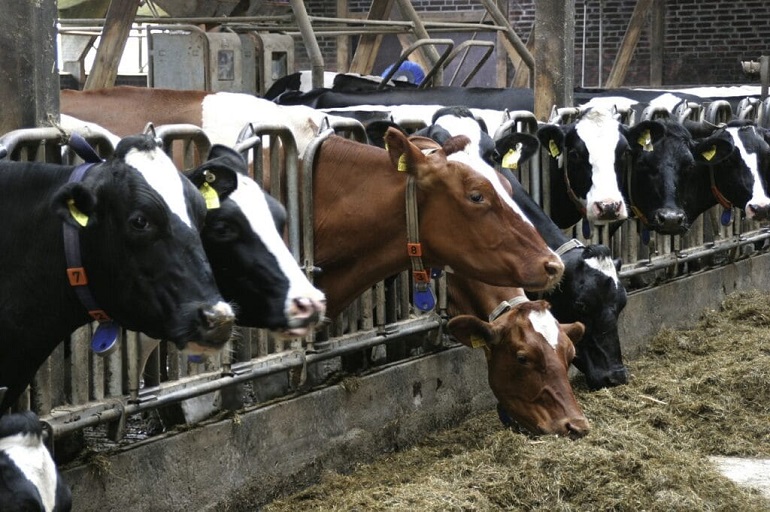The Hidden Suffering: Unveiling Animal Harshness in Manufacturing facility Farms

The food industry sustains humankind, providing sustenance and nourishment to gigantic amounts around the globe. Yet, behind the veil of convenience and abundance, lies a dark reality – the pervasive harshness managed through by animals within manufacturing facility farms. As demand for meat, dairy, and eggs escalates, so does the intensity of suffering inflicted upon the sentient beings that fuel this industry. From cramped cages to barbaric practices, the plot of animal harshness in manufacturing facility farms is one of exploitation and neglect for life. Manufacturing facility farms, also known as concentrated animal feeding operations (CAFOs), are producers Vegan diet risks for maximum efficiency in meat, dairy, and ovum production. These facilities house thousands of animals, often in cramped and unsanitary conditions, where they are subjected to routine mistreatment and neglect. Pigs, chickens, cows, and other livestock endure lives lacking natural behaviors and basic survival considerations. Pigs, highly intelligent and social creatures, are kept to metal gestation crates barely larger than their bodies, unable to publish or express their natural behaviors. Chickens, carefully bred for rapid growth, are congested into windowless outdoor storage sheds, suffering from broken our bones and respiration issues due to overcrowding and poor venting. Dairy cows are repeatedly impregnated to maintain milk production, in order to have their lower legs recinded right after birth, causing immense distress to both mother and offspring.
The unremitting pursuit of profit within manufacturing facility farming has dire consequences for both animals and the environment. Overuse of antibiotics to combat disease outbreaks in congested conditions contributes to the rise of antibiotic-resistant bacteria, posing a significant threat to human health. Moreover, the environmental toll of manufacturing facility farming is staggering, with widespread carbon dioxide of air, soil, and streams due to manure runoff and chemical inputs. Beyond the immediate suffering inflicted upon animals, manufacturing facility farming perpetuates a cycle of exploitation that also includes human workers as well. Low wages, hazardous working conditions, and psychological tension are commonplace those types of employed in the industry, showcasing the interconnectedness of social justice and animal survival issues. The meaning significance of manufacturing facility farming are deep, challenging humanity’s moral compass and calling into question our treatment of sentient beings. As sentient creatures capable of experiencing pain, fear, and joy, animals deserve to be afforded basic the law and protections. Yet, the institutionalized harshness of manufacturing facility farming guards them of their inherent worth, reducing them to pure everything in the pursuit of profit. Furthermore, the detachment between consumers and the start of their food perpetuates a culture of apathy and indifference towards animal suffering. By turning a shades eye to the concrete realities of manufacturing facility farming, consumers inadvertently perpetuate the cycle of harshness, enabling the continuation of exploitative practices.
The fight against animal harshness in manufacturing facility farms is not without hope. An established movement of activists, organizations, and meaning consumers are advocating for change, demanding visibility and obligation within the food industry. From grassroots campaigns to legislative reforms, there is a groundswell of momentum towards a more compassionate and sustainable future. Consumer awareness and education play a pivotal role in driving change, empowering individuals to make informed choices that arrange with their values. By supporting meaning farming practices and opting for plant-based alternatives, consumers can effectively challenge the status quo and affect the cycle of exploitation perpetuated by manufacturing facility farming. Moreover, legislative measures and corporate obligation initiatives crucial in holding manufacturing facility farms accountable for their actions and incentivizing more humane and sustainable practices. By implementing stricter regulations and enforcing meaning standards, policymakers can ensure that animal survival considerations are prioritized within the food industry.
Animal harshness in manufacturing facility farms is a sobering reminder of the meaning and environmental costs of industrialized agriculture. Behind the slick packaging and supermarket shelves lie the hidden suffering of countless sentient beings, whose lives are sacrificed in the name of convenience and profit. However, as awareness grows and momentum builds, there is a solution to a happier future – one where compassion triumphs over harshness, and animals are treated with the dignity and respect they deserve. It is incumbent upon us, as individuals and as a society, to stand up against injustice and advocate for a more compassionate and sustainable food system. Only then can we truly embody the principles of empathy and meaning stewardship towards all living beings.
+ There are no comments
Add yours